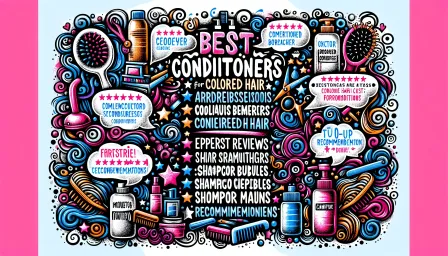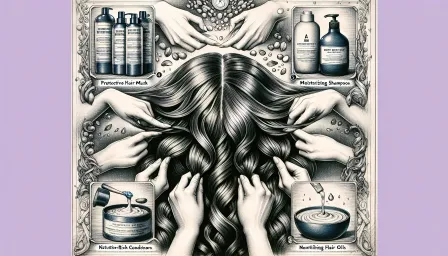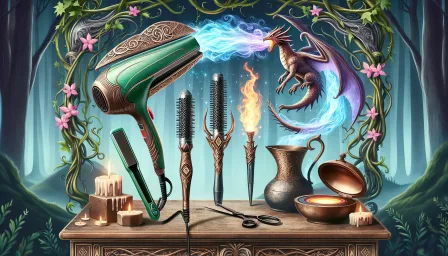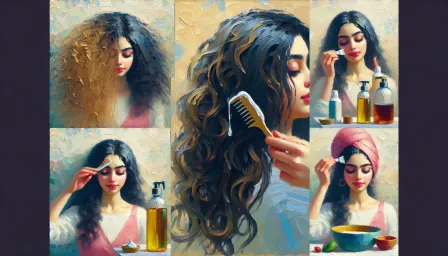The Best Scalp Treatments for Hair Loss: A Comprehensive Guide
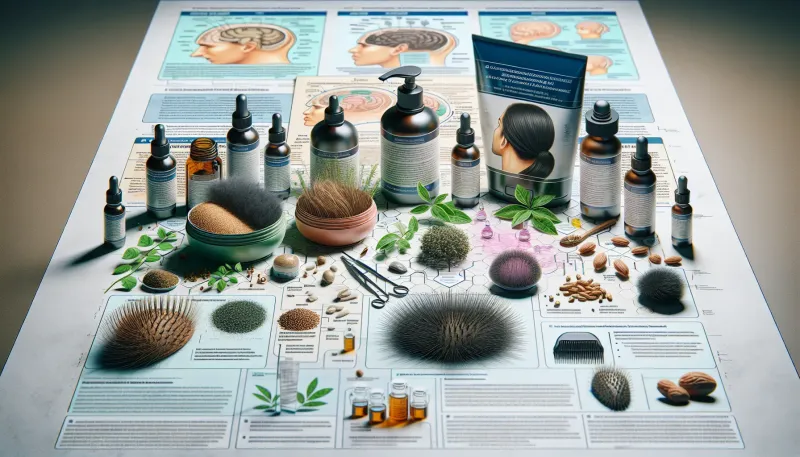
Discover the best scalp treatments for hair loss with our comprehensive guide. Learn about effective remedies and expert tips to combat thinning hair.
Hair loss is a concern faced by millions of people worldwide. While genetics play a significant role, there are effective scalp treatments that can help manage and reduce hair loss. This comprehensive guide covers the best scalp treatments for hair loss, ensuring you have the information needed to make informed decisions.
Understanding Hair Loss
Hair loss, or alopecia, can be caused by various factors including genetic predisposition, hormonal imbalances, nutritional deficiencies, and stress. According to Mayo Clinic, it is crucial to identify the underlying cause to choose the appropriate treatment.
Why Scalp Health Matters
Maintaining a healthy scalp is fundamental in preventing hair loss and promoting hair growth. A clean and nourished scalp provides the right environment for hair follicles to thrive. Scalp treatments can address issues like dandruff, excess oil, and inflammation that impede hair growth.
Effective Scalp Treatments for Hair Loss
Topical Treatments
Minoxidil
Minoxidil is an FDA-approved topical treatment known for its effectiveness in stimulating hair growth. Applied directly to the scalp, it enhances blood flow to hair follicles, promoting regrowth. It's available over-the-counter, making it accessible for anyone experiencing hair thinning.
Corticosteroids
For hair loss caused by inflammation, corticosteroid treatments can be beneficial. These are usually prescribed by dermatologists and can be applied topically or injected directly into the scalp to reduce inflammation and promote hair growth.
Essential Oils
Essential oils such as lavender, rosemary, and peppermint have shown promise in improving scalp health and stimulating hair growth. Studies have indicated that massaging these oils into the scalp helps in increasing blood circulation and strengthening hair follicles.
Oral Medications
Finasteride
Finasteride is another FDA-approved treatment for hair loss. It works by inhibiting the hormone dihydrotestosterone (DHT), which is responsible for hair follicle shrinkage. Prescription-only, it has been successful for many in combating hair loss.
Therapeutic Procedures
Platelet-Rich Plasma (PRP) Therapy
PRP therapy involves drawing a small amount of your blood, processing it to concentrate the platelets, and then injecting this platelet-rich plasma into your scalp. These platelets release growth factors that stimulate hair follicles and promote regrowth.
Laser Therapy
Low-level laser therapy (LLLT) uses laser light to stimulate hair follicles. This non-invasive treatment improves blood circulation and cell metabolism within the scalp, encouraging hair growth. It is available in clinics and via at-home devices.
Lifestyle and Dietary Considerations
Nutrition
A balanced diet rich in essential vitamins and minerals supports hair health. Nutrients such as biotin, zinc, iron, and vitamins A, C, D, and E are particularly important. Incorporating foods like eggs, nuts, leafy greens, and fish can make a significant difference in preventing hair loss.
Stress Management
Chronic stress can lead to hair loss by disrupting the hair growth cycle. Practices such as yoga, meditation, and regular physical exercise can help manage stress levels, contributing to overall hair health.
Consultation with a Specialist
If hair loss persists or worsens, consulting a dermatologist or trichologist (a specialist in hair and scalp health) is highly recommended. They can diagnose the specific cause and recommend tailored treatments.
Conclusion
Addressing hair loss involves a multi-faceted approach, combining effective scalp treatments, a healthy lifestyle, and professional consultation. By understanding the various options available, you can take proactive steps to nurture your scalp and mitigate hair loss. Remember, consistency and patience are key in seeing positive results.




